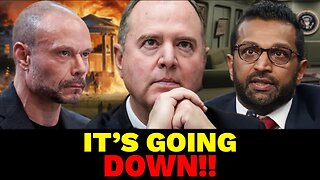Premium Only Content

Forex trading
Forex trading, also known as foreign exchange trading or FX trading, is the process of buying and selling currencies in the foreign exchange market with the aim of making a profit. Here's a detailed description of forex trading:
1. **Market Overview**:
Forex trading is one of the largest financial markets in the world, with a daily trading volume exceeding $6 trillion as of my last knowledge update in September 2021. It operates 24 hours a day, five days a week, due to the global nature of currency markets.
2. **Currency Pairs**:
In forex trading, currencies are traded in pairs. The first currency in the pair is the base currency, and the second is the quote currency. For example, in the EUR/USD pair, EUR is the base currency, and USD is the quote currency. The exchange rate indicates how much of the quote currency is needed to buy one unit of the base currency.
3. **Market Participants**:
Various participants engage in forex trading, including central banks, commercial banks, financial institutions, corporations, governments, and individual traders. The latter, often referred to as retail traders, access the market through online platforms provided by brokers.
4. **Trading Platforms**:
Forex trading is conducted through electronic trading platforms offered by forex brokers. These platforms provide traders with access to live price quotes, charts, technical analysis tools, and the ability to execute trades.
5. **Leverage**:
Forex trading often involves the use of leverage, which allows traders to control a larger position size with a relatively small amount of capital. While leverage can amplify profits, it also increases the potential for significant losses.
6. **Trading Strategies**:
Traders employ various strategies to speculate on currency price movements. Common strategies include day trading, swing trading, scalping, and long-term investing. Technical analysis, fundamental analysis, and sentiment analysis are tools used to make trading decisions.
7. **Risk Management**:
Managing risk is crucial in forex trading. Traders use stop-loss orders to limit potential losses, and they diversify their portfolios to reduce risk exposure. Effective risk management is essential to protect capital.
8. **Market Volatility**:
Forex markets can be highly volatile, and prices can change rapidly due to various factors, including economic data releases, geopolitical events, central bank policies, and market sentiment.
9. **Regulation**:
Forex markets are regulated in most countries to ensure fair and transparent trading. It's important to choose a reputable and regulated forex broker when participating in the market.
10. **Continuous Learning**:
Successful forex trading requires continuous learning and adaptation. Markets evolve, and traders must stay informed about economic developments and changes in market conditions.
11. **Taxation**:
Tax treatment of forex trading profits and losses varies by country, and it's important for traders to understand their tax obligations.
12. **Psychological Factors**:
Emotions can play a significant role in forex trading. Discipline, patience, and the ability to control emotions like greed and fear are essential for success.
In summary, forex trading is the act of buying and selling currencies in a dynamic global market. It offers opportunities for profit, but it also carries substantial risks. Traders must carefully study the market, develop sound strategies, and exercise prudent risk management to navigate the world of forex trading successfully.
-
 49:41
49:41
BonginoReport
7 hours agoKristi Noem Honors Angel Mom After Son's Brutal Murder - Nightly Scroll w/Hayley Caronia (Ep.23)
126K54 -
 45:22
45:22
Stephen Gardner
5 hours ago🔥WTF! Dan Bongino’s CRYPTIC ARREST message!
76.3K54 -
 1:30:16
1:30:16
2 MIKES LIVE
6 hours ago2 MIKES LIVE #203 Lone Survivor with Donna Axelson and Adam Flynn!
44.3K -
 1:18:49
1:18:49
Kim Iversen
8 hours agoEXPOSED: Inside Tim Pool’s Secret Meeting with Netanyahu | Trump’s Tariff Gamble: Boost for America or Death Blow?
156K265 -
 5:28:29
5:28:29
Biscotti-B23
8 hours ago $1.28 earned🔴 LIVE GETSUGA GAUNTLET 🔥 TRAINING FOR RANKED ⚔ BLEACH REBIRTH OF SOULS
41K1 -
 1:19:00
1:19:00
Sarah Westall
5 hours agoMassive Spiral Structures Found Under Giza Pyramids, Advanced Ancient Societies w/ Jay Anderson
86.9K17 -
 54:32
54:32
LFA TV
12 hours agoStrongman Stare Down | TRUMPET DAILY 4.9.25 7PM
73.9K11 -
 1:35:31
1:35:31
Redacted News
8 hours agoBioweapons over America? U.S. Geo-engineering caught raining mysterious objects over U.S. | Redacted
203K276 -
 1:19:20
1:19:20
vivafrei
10 hours agoCanadian Government & Courts Denying Military Jab Injury Compensation? Trump Pronouns "No Thanks"?
131K40 -
 54:20
54:20
Candace Show Podcast
8 hours agoHarvey Weinstein Calls Out Justin Baldoni | #MAHA Gaslighting Begins | Candace Ep 174
130K118